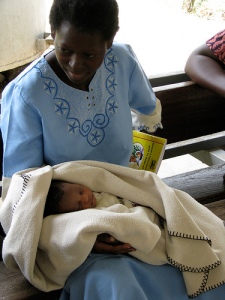Michael Hubbard is Reader in Development Economics and a specialist in public economic management, international aid management, and agriculture policy reform. In this blog post, he comments on the mood in the run up to the Millennium Development Goals summit, 20-22 September in New York
No one predicted collapse of the Soviet Union, global freeze in bank credit from sub-prime mortgage defaults, or loss of confidence in the Euro through misgovernment in Greece. Similarly unpredicted was how a focus on poverty reduction in the mid-1990s would produce probably the biggest shift in development ideas and effort that has occurred since the post-World War 2 era: the time when the World Bank and IMF were formed, substantial money was invested in impoverished colonies for the first time and decolonisation began.
It produced a concerted attempt via the Millennium Development Goals to specify multiple poverty reduction targets, remove aid from the grasp of political and commercial interests and improve governance — all with the main purpose of poverty reduction.
But ten years on is a less confident time in donor countries. There are moves to re-harness development policy to foreign policy, and donor agencies face increased demands to show voters that they are getting value from their aid. Are we at another tipping point which will deliver development cooperation back to where it was twenty years ago, with donors unabashedly promoting their own interests through their aid? Perhaps abetted by the rise of new donors who seem to do just that?
That scenario is unlikely because the first decade of the MDGs, for all their shortcomings, has built a momentum which will be hard to stop:
 Photo courtesy DFID
Photo courtesy DFID
Newborn baby Michelle, Sindo District Hospital, Nyanza, Kenya
First, the MDGs have achieved much, notably in health and education in Africa and more widely, particularly reduced child mortality and increased primary school enrolment. (UN Millenium Development Goals Report 2009)
Second, poverty reduction is far from worn out as a rallying cry. Its moral foundation is secure: providing opportunity to those deprived of it (poverty reduction by another name) is the moral winner in debates about fairness and justice (e.g. Rawls, Nozick, Sen). As aid coordination shifts increasingly to the G20 level (whether under a broadened DAC or under the UN) poverty reduction is likely to remain the common ground on which a wider coalition can be built, and it is in terms of enhancing and protecting vulnerable people’s livelihoods that benefits from raising economic growth and combating climate change will mainly be stated.
Third, efforts to direct aid to where it is most needed have increased in this first decade of the MDGs, whether or not one regards the ‘fragile state’ label as useful. So too have efforts to tackle stubborn inefficiencies in aid design and delivery, notably through the Paris Declaration and its follow up. Reducing donor congestion and disruptive unilateral behaviour probably awaits more economic power in individual recipient countries; but the problem is increasingly highlighted. Bringing aid data out of the shadows into standardised accounts has begun — if there can be standardised national income accounts why not aid accounts?
In sum, the efforts of the first MDG decade are not about to be reversed. If there is a will for change it is for experimentation to make aid management more equal to the challenge of the MDGs. Donor statements that aid will be ring fenced from budget cuts suggest there is no mood for surrender and return to old ways.
